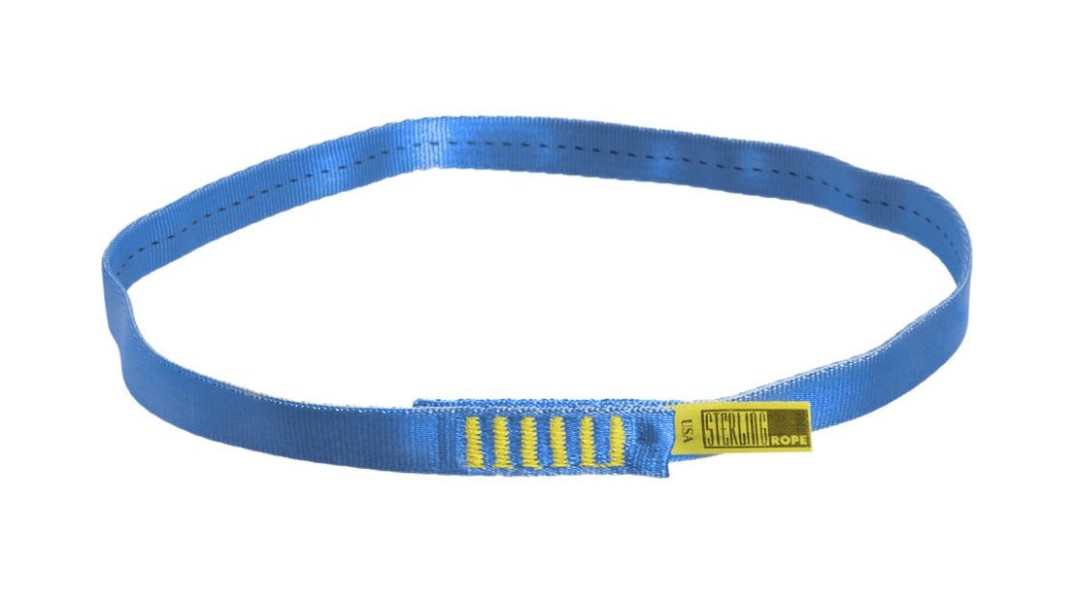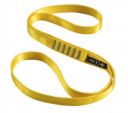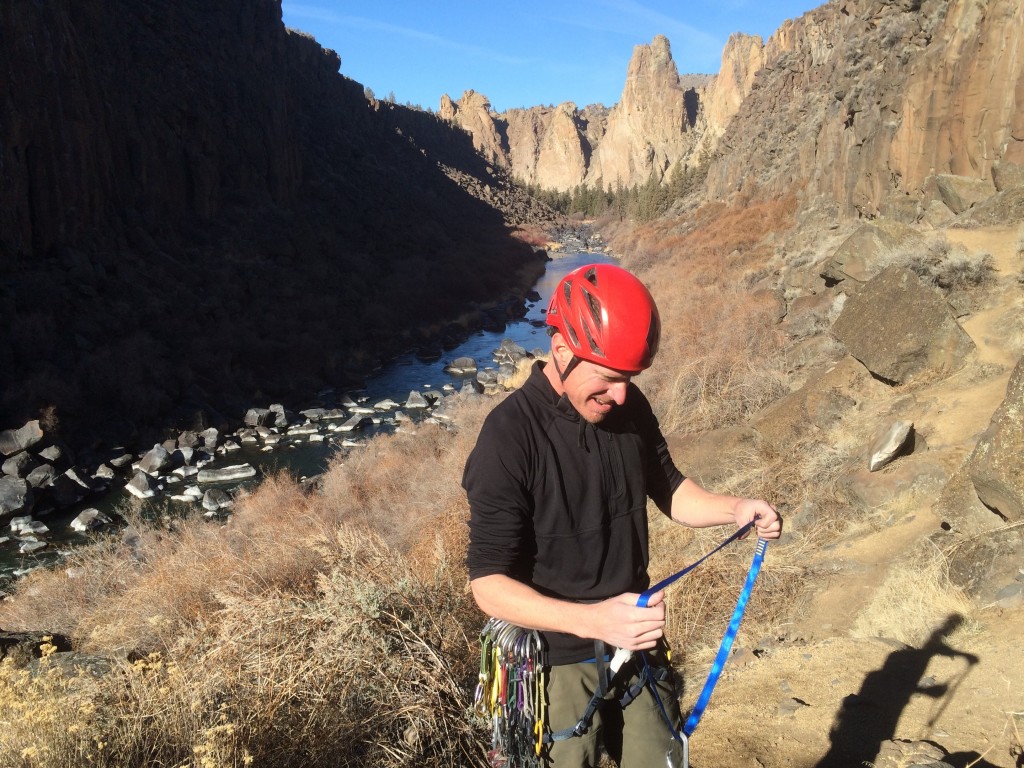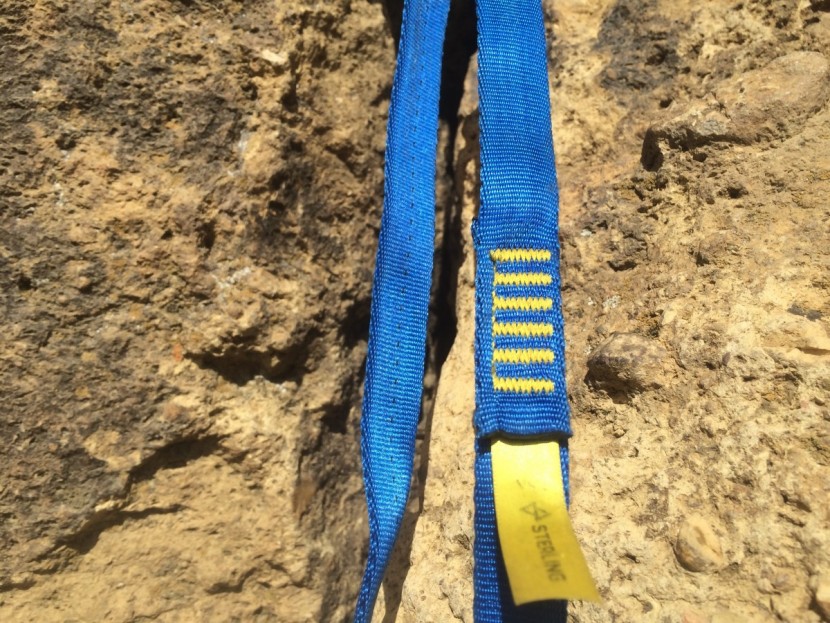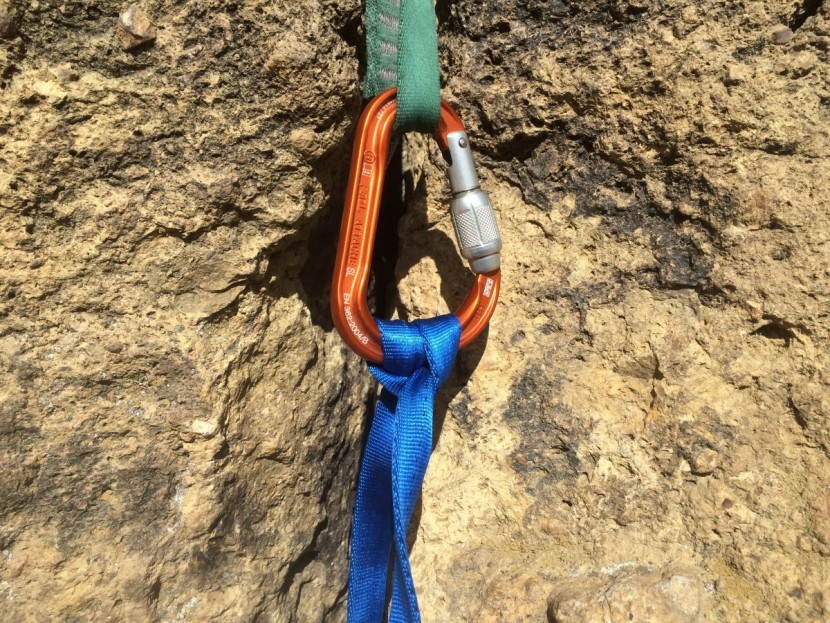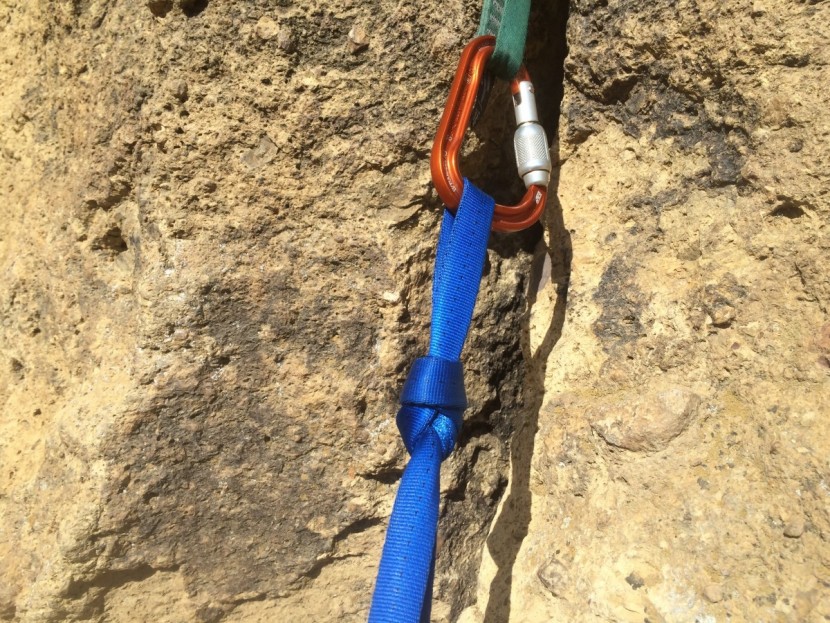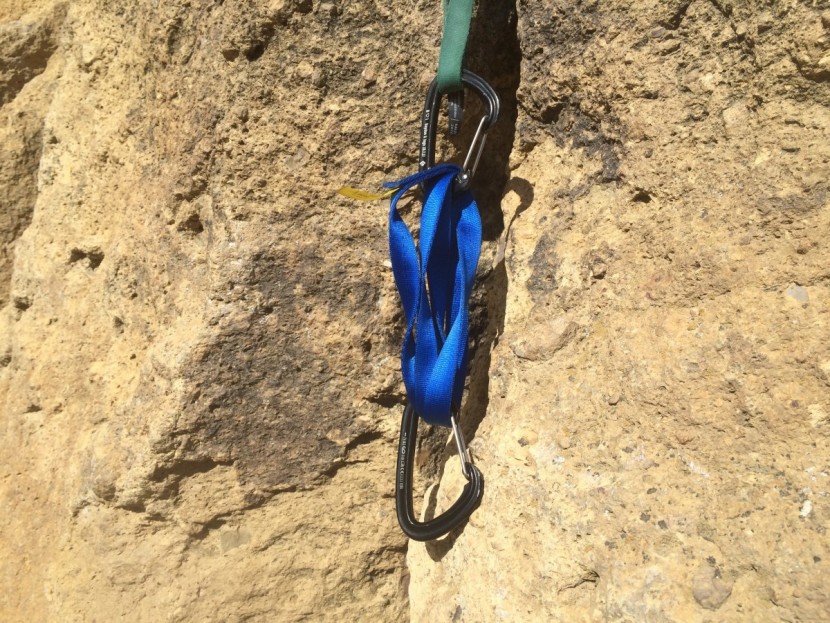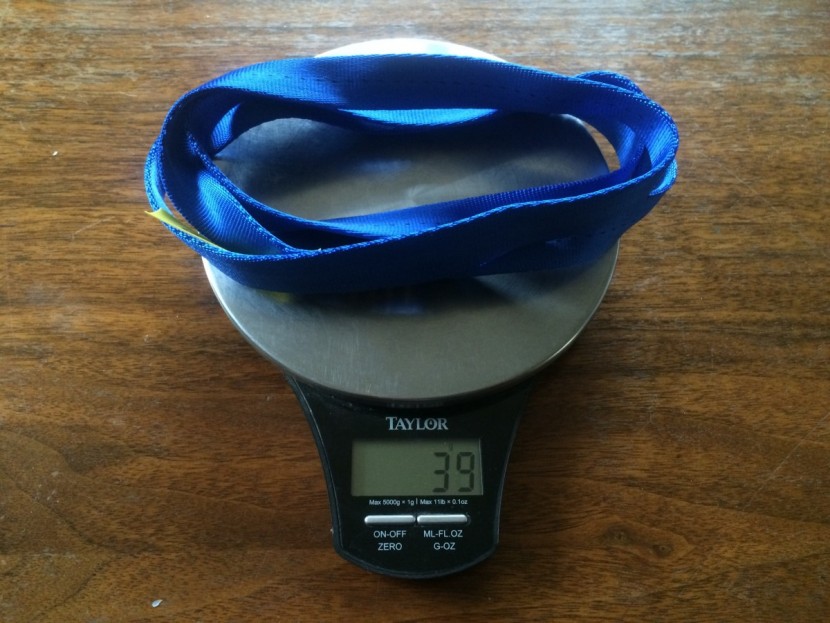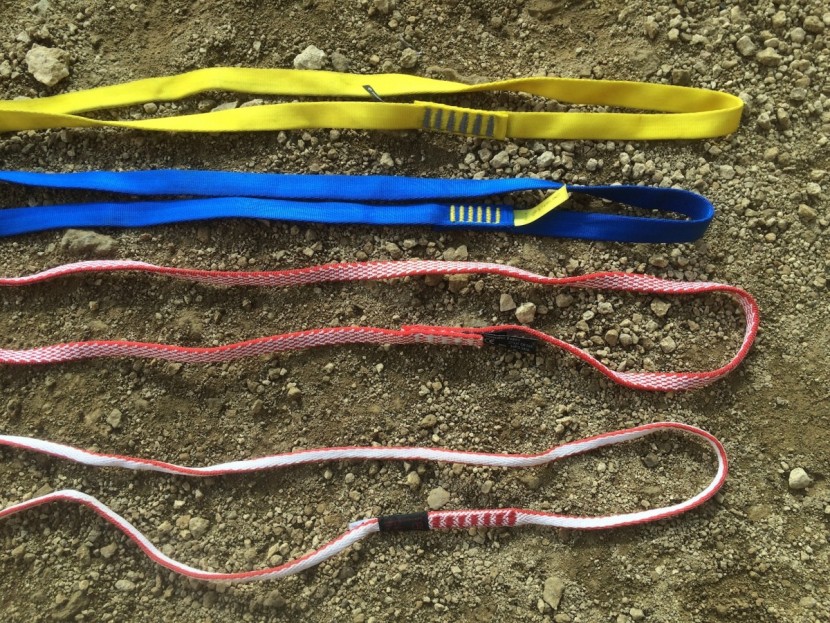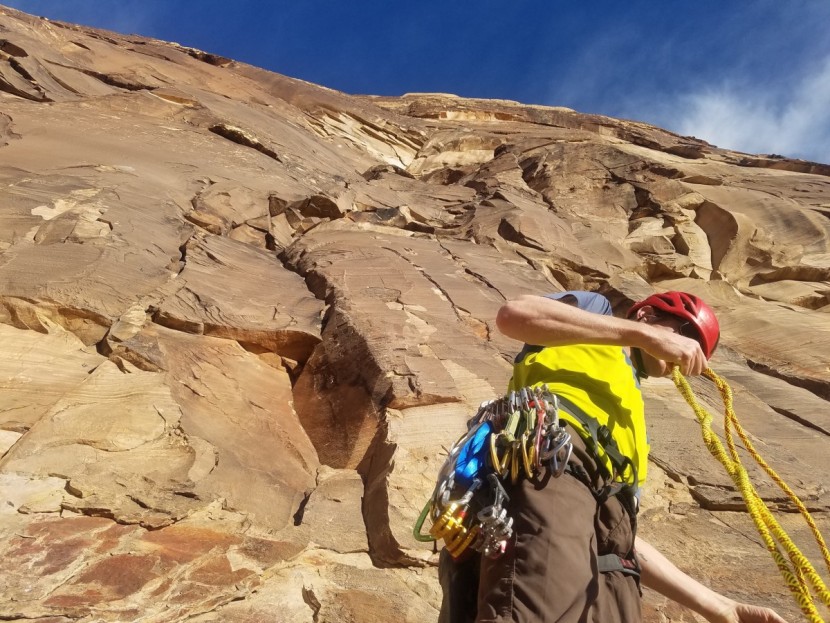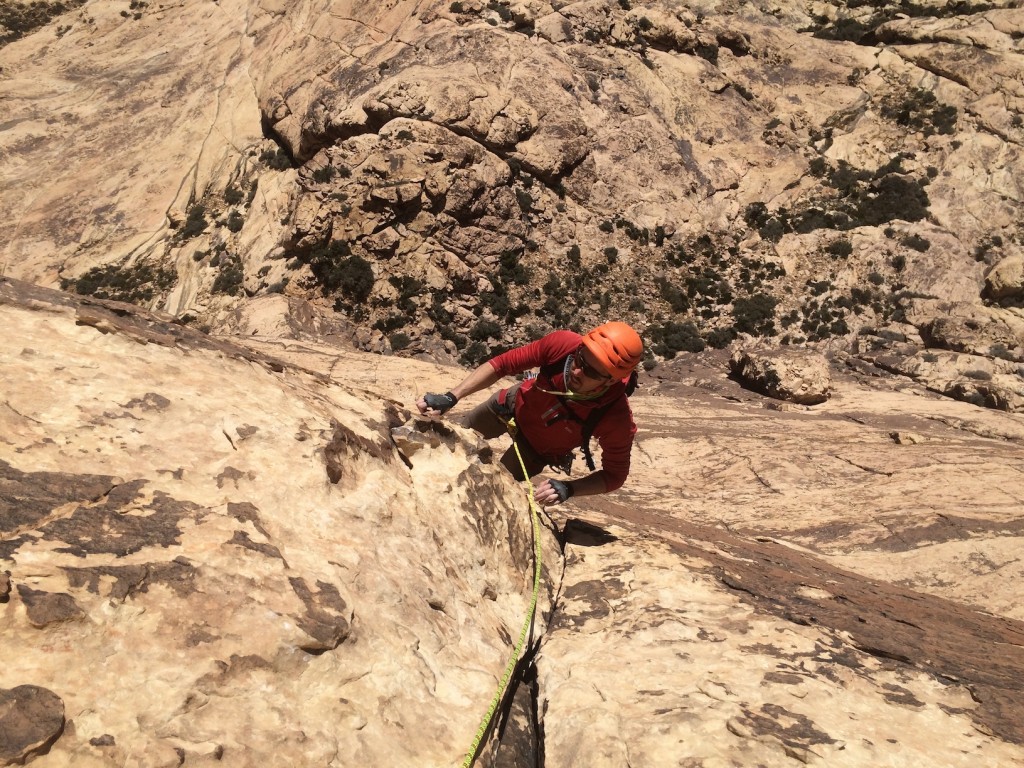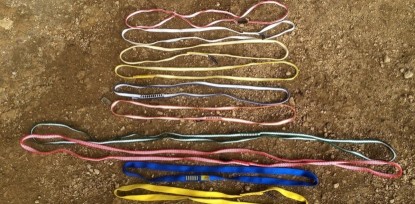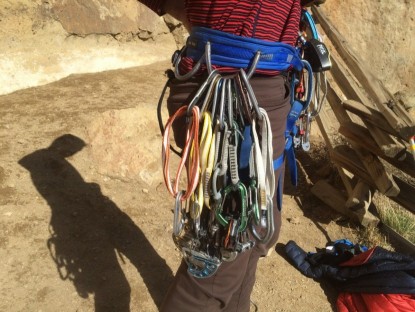Sterling Nylon Sewn Runner Review
Our Verdict
Compare to Similar Products
 This Product
Sterling Nylon Sewn Runner | |||||
|---|---|---|---|---|---|
| Awards | Best Overall Climbing Sling | Best Bang for the Buck | |||
| Price | Check Price at Amazon | $10.00 List Check Price at REI | $8.95 at REI Compare at 2 sellers | $10.00 List $10.95 at REI | $6.95 at REI Compare at 2 sellers |
Overall Score  |
|||||
| Star Rating | |||||
| Bottom Line | Performs exactly the same as the Black Diamond Nylon Sewn Runner except it costs more | Our Editors’ Choice winner because it is lighter and more compact than any other without compromising performance | One of the highest value options that we tested | One of the best value purchases available for a climbing sling | A small trade-off in performance for a relatively large savings in cost when considering buying a whole rack |
| Rating Categories | Sterling Nylon Sewn... | Mammut Contact Dyneema | Black Diamond Dynex... | Trango Low Bulk 11m... | Black Diamond Nylon... |
| Handle (25%) | |||||
| Knot Test (25%) | |||||
| Alpine Quickdraw Test (20%) | |||||
| Weight (15%) | |||||
| Bulk (15%) | |||||
| Specifications | Sterling Nylon Sewn... | Mammut Contact Dyneema | Black Diamond Dynex... | Trango Low Bulk 11m... | Black Diamond Nylon... |
| Type of Fiber | Nylon | Dyneema | Dynex | Dyneema | Nylon |
| Measured weight | 38g | 19g | 20g | 20g | 37g |
| Width Tested | 17mm | 8mm | 10mm | 11mm | 18mm |
| Length Tested | 60cm | 60cm | 60cm | 60cm | 60cm |
| Strength | 22Kn | 22Kn | 22Kn | 22Kn | 22Kn |
| Widths Available | 17mm | 8mm | 10mm | 11mm | 18mm |
| Lengths Available | 12"; 24"; 30"; 48" | 60cm; 120cm | 30cm; 60cm; 120cm; 240cm | 30cm; 60cm; 120cm | 30cm; 60cm; 120cm; 240cm |
Our Analysis and Test Results
If you were to conduct a blind test between this sling and the Black Diamond Nylon Sewn Runner, we promise that you would not even be able to tell the difference. Oddly enough, the Sterling is advertised at 17mm wide, compared to the 18mm width listed on Black Diamond's website, but lined up side to side they are absolutely the same identical width. In every single category and every single test we felt they performed exactly the same, although one is more expensive (Sterling) than the other (Black Diamond), and so the decision on which one to choose is obvious.
Compared to Dyneema runners, Nylon slings are heavier, bulkier, and have added friction that makes it more difficult to untie weighted knots or equalize out tripled up alpine draws. However, they are also far less expensive, feel better against the skin, make for far more comfortable gear slings should you need to use one, and allow for elastic stretch of up to 30% when absorbing a fall, potentially adding safety to your systems.
Handle
Compared side-by-side, we simply feel that the Nylon fibers in this sling are smoother, softer, and more gentle against the skin than the Dyneema fibers of most of the slings we tested, with the exception of the Mammut Contact Sling, our Editors' Choice Award winner. For this reason we awarded this sling the highest score when it comes to handle, and think that its suppleness more than warrants that merit.
Knot Test
With such a wide (17mm) piece of webbing, we find it is hard to tie knots, whether a clove hitch or a figure-eight, without a twist or two working their way into the knot. However, twists don't detract from the knot's ability to hold. The Nylon slings, this one included, have the propensity to tighten up and weld themselves when knotted and weighted more than any of the thinner slings we tested, and were thus the hardest to quickly untie. The easiest way to untie these difficult knots is to try to force the un-weighted end through the knot until it loosens a bit, but this can be difficult if you are standing at a small stance before seconding a pitch. The sling that allows knots to be weighted and then untied the easiest is our Top Pick for Anchor Building, the Metolius Open Loop Sling.
Alpine Quickdraw Test
Nylon slings also perform the lowest when it comes to tripling them up into alpine quickdraws. Because the webbing is so thick, the only way it can fit through the crotch of a carabiner is if the different strands overlap. This means that when you pull the two carabiners apart to equalize all the strands, some pinch others, preventing them from sliding and easily equalizing. Similarly, when extending the sling outward into its full length, there is added friction due to the amount of material. Don't get us wrong and think these tasks become impossible with these slings, its simply that they perform these tasks with more difficulty than their Dyneema competition, such as the Petzl Pur'Anneau Sling.
Weight
We tested the 24" double-length version of this sling and weighed it on our independent scale at 38g, 1g heavier than the nearly identical BD Nylon Sewn Runner. These were the two heaviest slings in this review.
Bulk
As you would expect, at 17mm wide, these are the bulkiest in our testing. Despite their width, the sling itself, a piece of tubular webbing, is actually rather thin, and the bar tack is relatively small as well. Wear them over the shoulder and the bulk of thick Nylon slings doesn't pose much of an issue, but triple up a whole rack of them to go on the harness, and the added bulk becomes significant.
Best Applications
The Sterling Nylon Sewn Sling will work just fine for nearly any climbing application, including extending pieces of protection on lead, or equalizing multiple pieces of protection at an anchor. However, there are other products in this review that will accomplish these tasks easier and are also lighter, less bulky, or less expensive.
Value
This sling is more expensive than the pretty much exact same product sold by Black Diamond. While it isn't much more, we also have to point out that you don't get great value by purchasing the more expensive product that performs exactly the same.
Conclusion
The Sterling Nylon Sewn Runner is a quality product that is a solid choice for budget conscious dirtbags who can't afford to spend an extra $30 on their rack of extendable runners and buy a product made from Dyneema. However, if money is that big of a deal, then you can also buy the Black Diamond Nylon Sewn Runner for even less, which is a no brainer. You could also consider buying strips of one-inch webbing off the spool at the climbing shop and simply tying your own slings for even less money, as the first ascensionists of that classic route you want to repeat did about 50 years ago.


